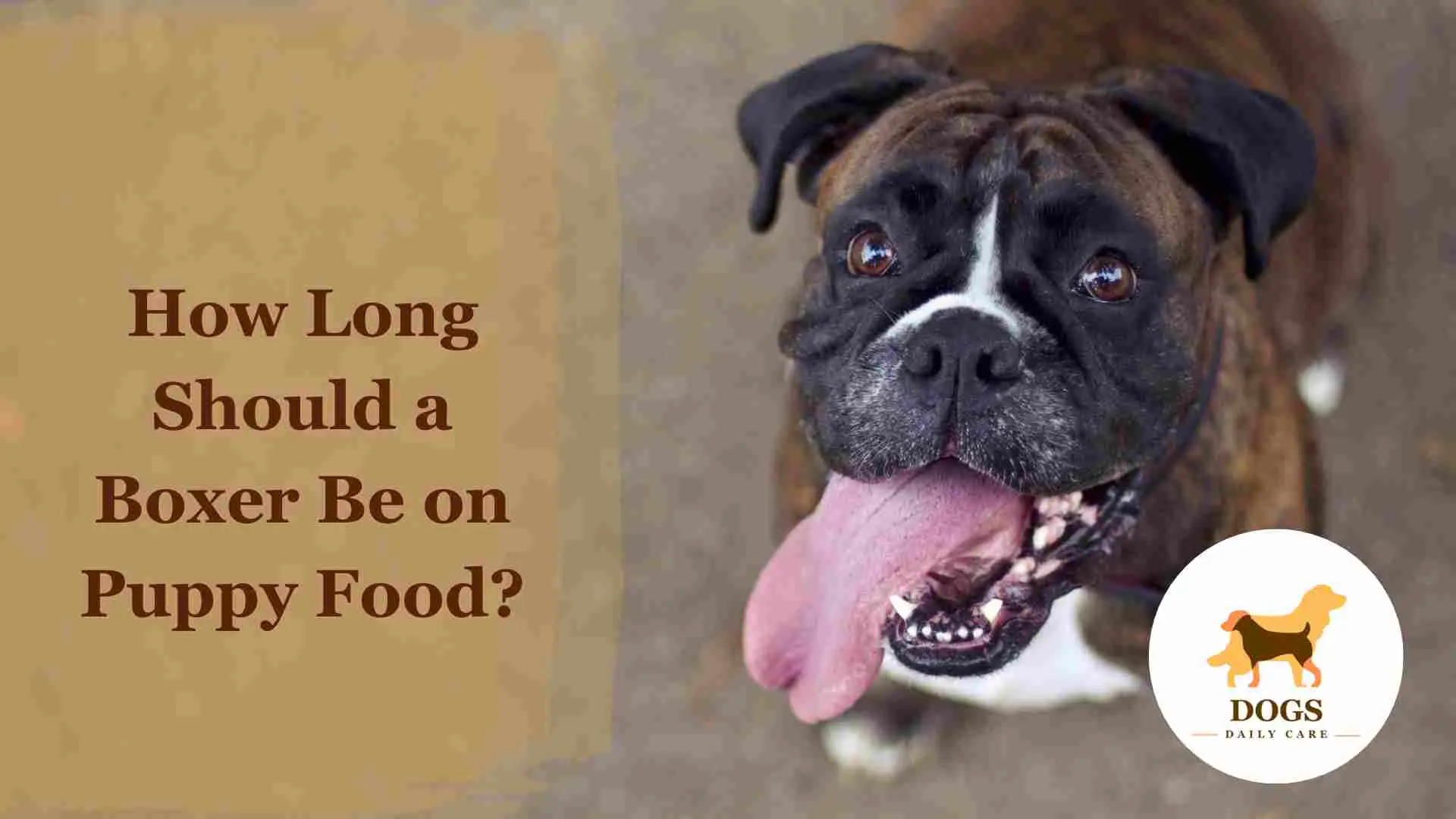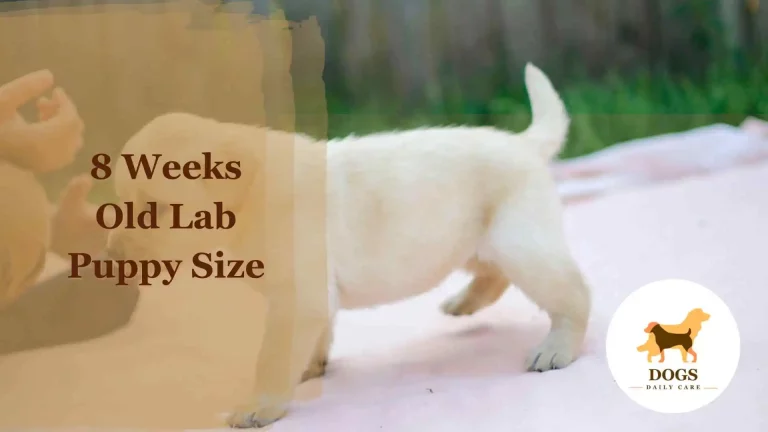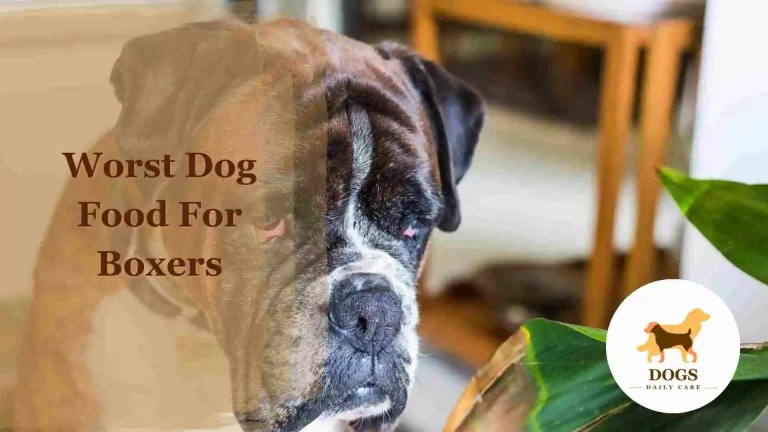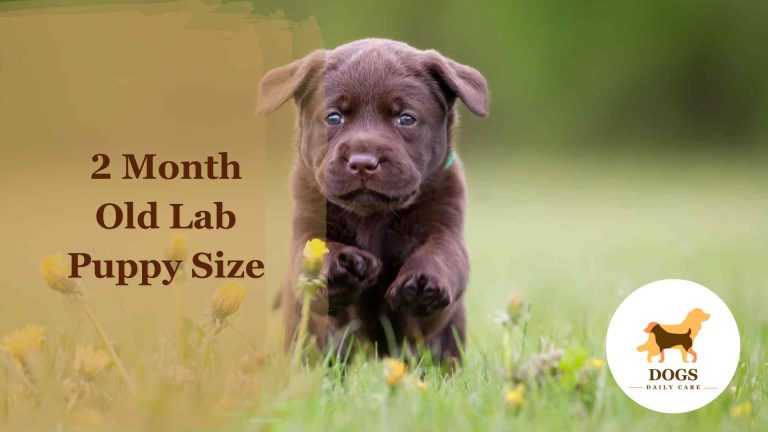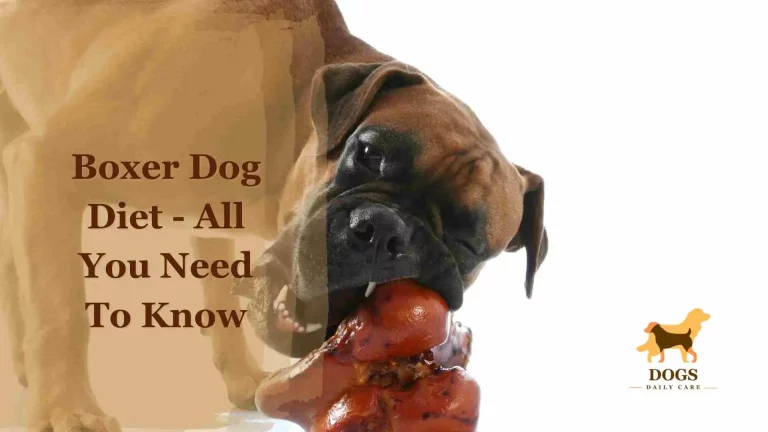How Long Should a Boxer Be on Puppy Food?
Raising a Boxer puppy is an exciting journey filled with joy and challenges, especially when it comes to their diet. Understanding the specific nutritional needs of this energetic and muscular breed is crucial for their overall health and development. Puppy food plays a pivotal role in this early stage, but knowing how long to feed it can often leave Boxer owners puzzled. This post delves into the key aspects of a Boxer puppy’s diet, shedding light on the optimal duration for feeding them puppy-specific food and why it’s so important for their growth.
Transitioning from puppy food to adult dog food is a significant step in your Boxer’s life, marking the beginning of a new dietary phase. The timing of this change is vital and varies for each individual dog, particularly for Boxers with their unique dietary requirements. In the following sections, we’ll explore the best practices for this transition, ensuring your Boxer puppy grows into a strong and healthy adult dog.
Understanding Boxer Puppies’ Nutritional Needs
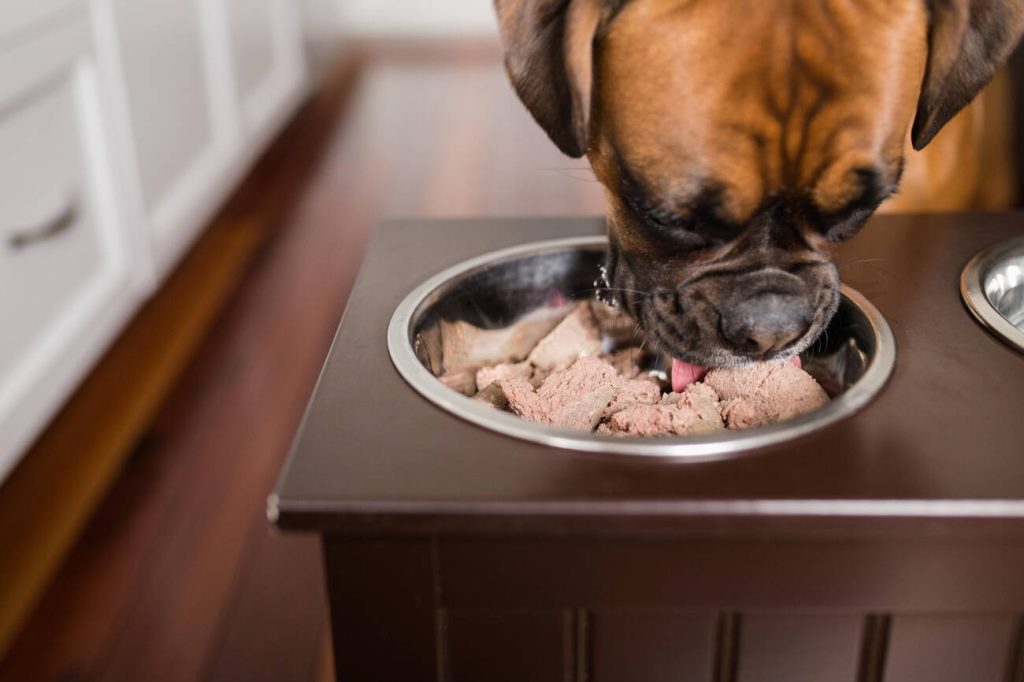
Boxer puppies are known for their boundless energy and rapid growth. This makes their nutritional needs quite unique. In the early months, a diet rich in protein is essential. Protein supports their muscle development, a key feature of this athletic breed. Look for puppy foods that list real meat as the first ingredient. This ensures your Boxer pup gets the quality protein they need.
Another crucial element is fat. Healthy fats, like those found in fish oil, are vital for Boxer puppies. They aid in brain development and keep their coat shiny and healthy. However, it’s important to balance this with the right amount of calories. Boxer puppies are prone to rapid weight gain, which can lead to health issues. A balanced diet keeps their growth steady and healthy.
Carbohydrates are also a part of a Boxer puppy’s diet. They provide the energy these playful pups need. But, choose carbs wisely. Whole grains or vegetables are better options than fillers like corn or wheat. They offer more nutrients and are easier on your puppy’s digestive system.
Lastly, don’t forget about vitamins and minerals. These are crucial for a strong immune system and overall health. Puppy foods fortified with essential vitamins and minerals specifically designed for large breeds like Boxers are a great choice.
The Right Age to Switch: Puppy Food to Adult Dog Food
Deciding when to switch your Boxer from puppy food to adult dog food is crucial. Typically, this change should happen when they reach about 12 to 15 months old. But, Boxers are unique. They grow fast in the first year and then slow down. So, timing can vary. Your pup might be ready earlier or might need a bit more time on puppy food.
Look for signs that your Boxer is maturing. These include a slower growth rate, less hyperactive behavior, and a more settled appetite. When you notice these changes, it’s a clue that your Boxer might be ready for adult food. But remember, every Boxer is different. Your puppy’s specific needs might vary.
It’s also essential to talk to your vet. They can give advice based on your Boxer’s health, weight, and growth pattern. This ensures you switch at the right time. Making the switch too early or too late can affect their development. So, getting it right is key.
The transition to adult dog food marks a new chapter in your Boxer’s life. It’s a step towards them becoming a strong, healthy adult dog. Taking care with this decision is part of being a responsible Boxer owner.
How to Transition Your Boxer from Puppy Food to Adult Food
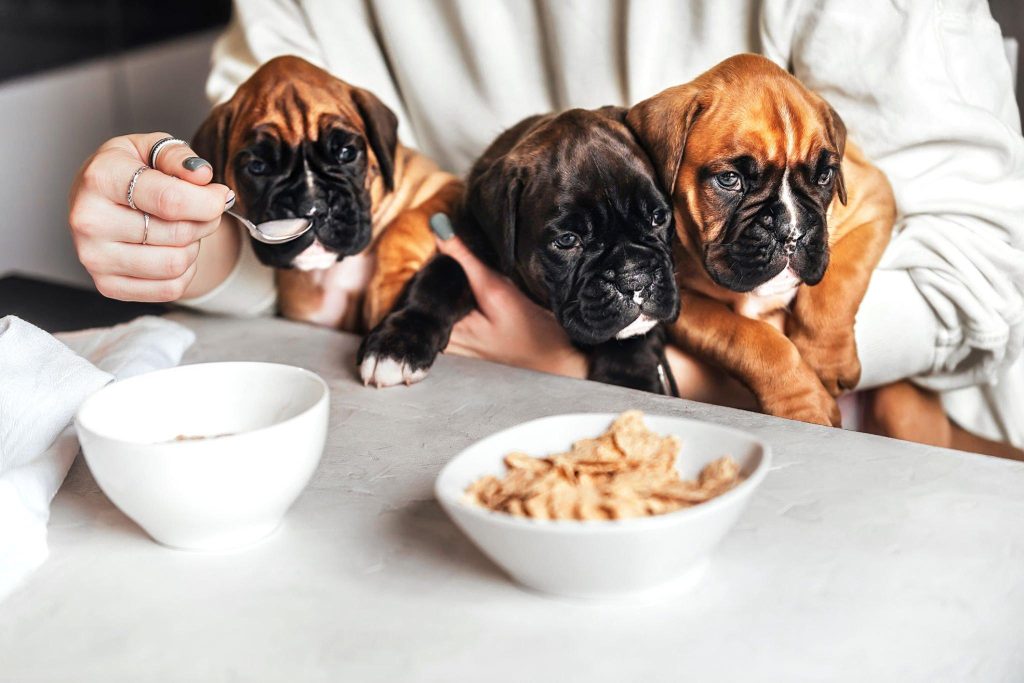
Transitioning your Boxer to adult food is a gradual process. It’s not just about age, but also about doing it right. Start by mixing a small amount of adult food with their usual puppy food. This mix should have more puppy food than adult food at first. Over the next 7 to 10 days, slowly increase the amount of adult food while decreasing the puppy food. This gradual change helps your Boxer’s digestive system adjust.
Watch how your Boxer reacts during this change. If they seem okay with the new mix, keep going. But if you see signs of stomach upset like diarrhea or vomiting, slow down the transition. Go back to the previous mix that suited them and try again more slowly. This gentle approach ensures a smooth transition without discomfort.
Choosing the right adult food is also important. Look for high-quality ingredients, suitable for a Boxer’s energetic lifestyle. Avoid foods with fillers and artificial additives. Your vet can suggest the best options based on your dog’s health and activity level.
Common Mistakes to Avoid
Feeding your Boxer puppy correctly is key, but it’s easy to make mistakes. One common error is overfeeding. Boxers are energetic and might seem always hungry, but overfeeding can lead to obesity and health problems. Stick to recommended portion sizes and maintain a regular feeding schedule.
Another mistake is switching foods too quickly. Whether it’s from puppy food to adult food or changing brands, always transition slowly. Quick changes can upset your Boxer’s stomach. Mix the new food with the old, gradually increasing the new food over a week or more.
Avoid feeding your Boxer table scraps. While it’s tempting to share your meal, human food often contains ingredients that aren’t good for dogs. Some can even be harmful. Stick to high-quality dog food designed for Boxer’s nutritional needs.
Finally, ignoring your vet’s advice can lead to feeding errors. Vets understand your Boxer’s unique dietary requirements. They can guide you on the right food types, portion sizes, and feeding frequencies. Regular check-ups help keep your Boxer’s diet on track.
Frequently Asked Questions (FAQs)
1. How often should I feed my Boxer puppy?
Boxer puppies typically need to be fed three times a day. As they grow, you can reduce this to twice a day. Consistent feeding times help regulate their digestion and energy levels.
2. Can I give my Boxer puppy treats?
Yes, treats are fine in moderation. Ensure they’re healthy and suitable for puppies. Treats should only make up a small portion of their diet to avoid overfeeding.
3. When should I start feeding my Boxer adult dog food?
Most Boxers are ready to transition to adult food between 12 to 15 months. However, consult with your vet as each puppy’s development can vary.
4. What are the signs that my Boxer is not tolerating their food well?
Keep an eye out for signs like diarrhea, vomiting, or lack of appetite. Also, changes in coat quality and energy levels can indicate dietary issues. If you notice any of these, consult your vet.
5. Is it okay to feed my Boxer human food?
While some human foods are safe in small amounts, it’s generally not recommended. Many human foods can be harmful to dogs. Stick to high-quality dog food and consult your vet for advice on safe human foods.
Conclusion
As we wrap up our guide on feeding Boxer puppies, remember that the journey from puppy food to adult dog food is a crucial part of your pet’s health and well-being. Ensuring a balanced diet, watching out for growth milestones, and understanding the unique needs of your Boxer are key to their development. Whether you’re a new Boxer owner or a seasoned pro, keeping these tips in mind will help your furry friend grow into a strong and healthy adult dog. The right nutrition in their early years lays the foundation for a happy, energetic life.
Finally, always remember that your vet is your best resource when it comes to your Boxer’s diet and health. Regular check-ups and open communication with your vet ensure that your puppy is on the right track. As you continue this journey with your Boxer, cherish each moment and watch them thrive under your care. For more insights and tips on raising healthy Boxers, stay tuned to our blog!

